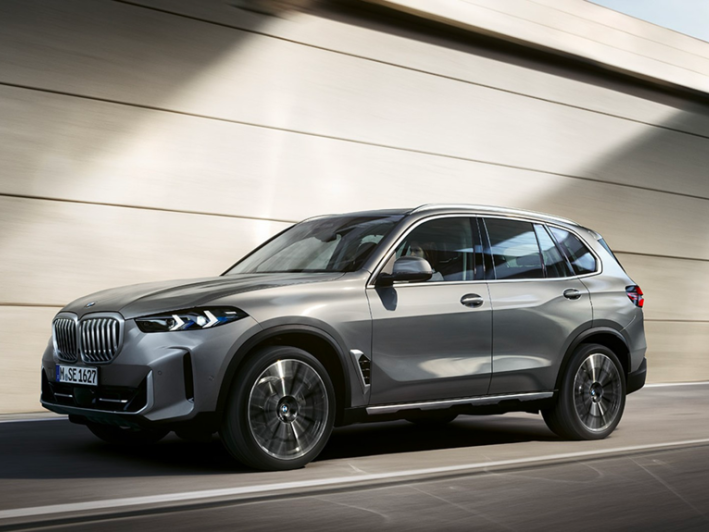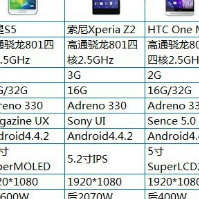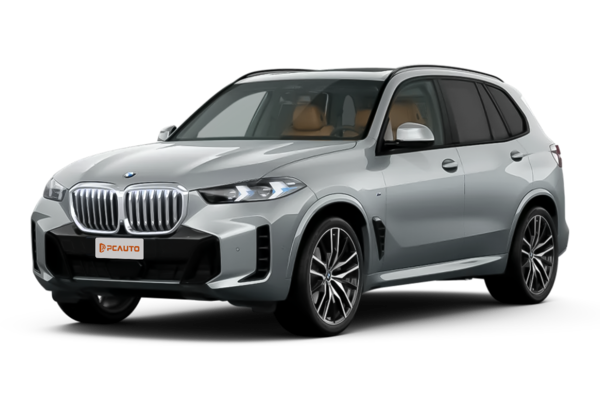Q
Is the BMW X5 made in China?
The BMW X5 Long Wheelbase version (G18) currently on sale in the Chinese market is produced at the BMW Brilliance Shenyang plant. This is a localized model launched by BMW to cater to Chinese consumers' demand for luxury SUVs. The standard wheelbase X5 (G05), on the other hand, is mainly imported into China from BMW's Spartanburg plant in the United States or its Rayong plant in Thailand.
As for the Malaysian market, the BMW X5s currently available are primarily imported from the Rayong plant in Thailand. Thanks to the tariff preferential agreements among ASEAN countries, BMW X5s imported from Thailand are more price-competitive. Malaysian consumers can enjoy BMW X5 quality that's on par with global standards, and at the same time, the models produced at the Thai plant have undergone adaptive adjustments for the tropical climate in Southeast Asia, such as enhanced air conditioning systems and improved heat dissipation performance.
It's worth mentioning that BMW has factories in multiple regions worldwide. This global production layout allows it to better meet the needs of different markets while ensuring consistent product quality. For Malaysian consumers, no matter which factory the BMW X5 is produced in, it has passed BMW's strict global unified quality standards inspection and can be purchased with confidence.
Special Disclaimer: This content is published by users and does not represent the views or position of PCauto.
Related Q&A
Q
What is the top speed of the 2019 BMW X5?
The top speed of the 2019 BMW X5 varies depending on the powertrain. The xDrive40i, equipped with a 3.0-liter turbocharged inline-six, is electronically limited to 250 km/h (155 mph), while the more potent M50i—with its 4.4-liter twin-turbo V8—hits the same 250 km/h cap but delivers noticeably quicker acceleration. Opting for the M Sport package’s "Driver’s Package" raises the limiter to 270 km/h (168 mph), though this requires upgraded tires and brakes to handle the extra speed.
Like most German luxury cars, the X5’s speed governor balances performance with safety while protecting the drivetrain from excessive wear. Though not as fast as BMW’s sedans, the X5 remains impressively stable at high speeds thanks to its xDrive all-wheel-drive system and adaptive suspension—making it a confident long-distance cruiser. For owners looking to exploit its performance, regular maintenance (especially brakes and tires) is key to keeping everything safe and road-ready.
Q
What is the difference between 2019 and 2020 BMW X5?
The key differences between the 2019 and 2020 BMW X5 lie in upgraded tech and features. For the 2020 model year, BMW made more equipment standard in certain markets—like the 12.3-inch digital instrument cluster and iDrive 7.0 infotainment with its more intuitive interface. Some variants also received enhanced driver assists, including improved lane-keeping and adaptive cruise control.
Visually, they’re nearly identical, though the 2020 version added optional wheel designs and paint choices. Under the hood, both years pack the same 3.0L turbocharged inline-six or 4.4L V8, but the 2020 tune prioritized slightly better fuel efficiency. BMW also retuned the suspension for sharper handling without sacrificing comfort.
For used-car shoppers, the 2020 X5’s extra kit might translate to marginally stronger resale value, though your budget and needs should dictate the choice. As a luxury midsize SUV, the X5 has always delivered driving thrills and premium comfort—both model years ace daily duties and road trips. The 2020 just edges ahead with tech perks.
Q
Is 2019 a good year for a BMW X5?
The 2019 BMW X5 is a well-rounded luxury SUV that delivers strong performance. Under the hood, its 3.0T inline-six packs plenty of punch, paired with an 8-speed automatic transmission for smooth and responsive driving dynamics. Built on the CLAR platform, it sheds weight while improving chassis rigidity—resulting in noticeably better handling and comfort.
Inside, the X5 features dual 12.3-inch digital displays (instrument cluster and infotainment) running BMW’s iDrive 7.0, giving the cabin a high-tech vibe. Fit and finish live up to the brand’s reputation for premium materials. Safety-wise, it comes standard with active braking, lane-keeping assist, and other driver aids that boost confidence behind the wheel.
For used-car shoppers, the 2019 X5 holds its value decently, but always check service records and mileage—especially for wear-prone components like the air suspension. Practicality is another strong suit, with ample space for families. If you find a well-maintained example at a fair price, this generation remains a solid pick. Just get a pre-purchase inspection to avoid surprises.
Q
How much horsepower does a 2019 BMW X5 have?
The 2019 BMW X5 offers a range of horsepower outputs across different powertrain configurations. The xDrive40i features a 3.0-liter inline-six turbocharged engine, delivering 335 horsepower and 450 Nm of torque. For those craving more performance, the xDrive50i packs a 4.4-liter V8 twin-turbocharged engine, churning out 456 horsepower and 650 Nm of torque. Opt for the plug-in hybrid xDrive45e, and you’ll get a combined output of 389 horsepower.
These powertrains ensure the X5 delivers strong performance without compromising everyday comfort. As a luxury SUV, the X5’s engineering focuses not just on power but also efficiency—thanks to technologies like TwinPower Turbo and lightweight construction, which enhance fuel economy while preserving driving dynamics.
If you’re into premium SUVs, it’s worth cross-shopping rivals in this segment. But the X5 has always stood out for its balance of power and handling, making it a solid pick for drivers who prioritize engagement behind the wheel.
Q
What generation is the 2019 BMW X5?
The 2019 BMW X5 represents the fourth generation (codenamed G05) of this iconic SUV. Built on the CLAR modular platform, the G05 delivers notable upgrades in weight reduction, tech features, and powertrain over its predecessor.
Visually, it sports larger kidney grilles and sharper body lines. Inside, you'll find a 12.3-inch digital instrument cluster and touchscreen infotainment system, debuting BMW's iDrive 7.0 with gesture control and voice assistant support.
Under the hood, the 2019 lineup offers multiple options: a 3.0T inline-six (xDrive40i), a 4.4T V8 (xDrive50i), and a plug-in hybrid variant (xDrive45e)—all paired with an 8-speed Steptronic transmission and xDrive all-wheel drive.
For the first time, BMW introduced an optional Off-Road Package featuring a rear differential lock and multiple terrain modes, boosting its rough-road capability. The G05 also marks BMW's first SUV with available laser headlights, boasting a 500-meter range. Plus, with a 30% stiffer chassis compared to the previous model, it delivers sharper handling and enhanced safety.
Q
How fast is the 2019 BMW X5?
The 2019 BMW X5 delivers impressive performance, with acceleration varying by engine choice. The range-topping X5 M50i packs a 4.4-liter V8 twin-turbocharged engine that rockets from 0-100 km/h in just 4.7 seconds, while the electronic limiter kicks in at 250 km/h. The entry-level xDrive40i, equipped with a 3.0-liter inline-six turbo, hits 100 km/h in 5.5 seconds with the same governed top speed – seriously quick for a midsize luxury SUV.
Beyond straight-line speed, the X5 features BMW's advanced xDrive all-wheel-drive system and adaptive suspension, ensuring composed handling and comfort across all road conditions. Multiple drive modes (Sport, Comfort, and Eco Pro) let you tailor the driving experience. What really stands out is the near-perfect 50:50 weight distribution – a signature BMW trait that keeps this tall SUV surprisingly agile through corners without sacrificing driving enjoyment.
Q
How much does it cost to replace the engine in a BMW X5 2019?
"The cost to replace a 2019 BMW X5 engine typically ranges between RM60,000 to RM150,000, depending on the engine type, whether you go for OEM or refurbished parts, and the labor charges at your chosen workshop. A brand-new factory engine costs more but comes with a warranty, while third-party rebuilt or used engines can save you money—just watch out for quality risks.
The X5’s B58 inline-six or N63 V8 turbocharged engines are complex beasts. When swapping them, it’s smart to also inspect the turbo system, cooling module, and related piping to avoid future headaches. If your car’s still under factory warranty, check with an authorized dealer first—you might qualify for partial or full coverage.
For high-mileage X5s with severe oil consumption or rod knock, a full engine replacement often makes more sense than a rebuild. But don’t skip the details: ensure proper ECU coding and chassis number updates, and pick a shop with BMW-specific diagnostic tools to avoid compatibility nightmares.
Pro tip? Stick to LL-04-approved oil and fix coolant leaks promptly—it’s cheaper than a new engine."
Q
Is the 2019 BMW X5 a good SUV?
The 2019 BMW X5 is a well-rounded SUV that delivers an exceptional driving experience, upscale interior, and cutting-edge tech—earning widespread praise. Under the hood, its 3.0-liter turbocharged inline-six packs plenty of punch while maintaining decent fuel efficiency, making it great for both daily commutes and road trips. Inside, you’ll find premium materials, a slick 12.3-inch infotainment screen with iDrive, and a spacious cabin (especially the rear seats and cargo area) that caters to families. Safety-wise, it comes loaded with driver-assist features like automatic emergency braking and lane-keeping assist. One heads-up, though: some owners note higher maintenance costs—a common trade-off for luxury vehicles. If your budget allows and you value brand prestige plus driving dynamics, the 2019 X5 is a solid pick. Its handling stands out in its class, perfect for drivers who crave engagement behind the wheel.
Q
What kind of engine is in the BMW X5 2019?
The 2019 BMW X5 offers a range of engine options to suit different driving preferences. The gasoline lineup includes the xDrive40i, powered by a 3.0-liter turbocharged inline-six delivering 335 hp and 450 Nm of torque. For those seeking more performance, the xDrive50i packs a 4.4-liter twin-turbo V8, churning out 456 hp and 650 Nm. There's also the plug-in hybrid xDrive45e, which combines a 3.0-liter six-cylinder engine with an electric motor for a total system output of 394 hp and an all-electric range of around 80 km.
All variants come paired with an 8-speed Steptronic automatic transmission, ensuring smooth shifts and efficient power delivery. BMW's TwinPower Turbo technology helps deliver strong low-end torque while improving fuel efficiency and throttle response.
The plug-in hybrid is a solid pick for eco-conscious buyers, blending zero-emission driving for daily commutes with the flexibility of a gas engine for longer trips. Maintenance-wise, regular checks on the turbocharging system and battery pack are recommended to keep everything running smoothly for the long haul.
Q
What type of oil does a 2019 BMW X5 use?
**BMW X5 (2019) Oil Recommendation**
For optimal performance, your BMW X5 requires a full synthetic oil that meets BMW’s **Longlife-01** or **Longlife-04** certification. The recommended viscosity is typically **5W-30** or **0W-30**, but the best choice depends on your engine type and driving conditions. In hotter climates, a **0W-40** oil may offer better high-temperature stability.
Stick to **genuine BMW oil** or trusted brands like **Shell, Mobil 1, or Castrol** that meet BMW’s specs—this ensures top-tier engine protection. Oil changes are crucial: aim for every **10,000–15,000 km (or 12 months)**, but always check your owner’s manual for exact intervals.
Full synthetic oils reduce wear, boost fuel efficiency, and extend engine life—especially important for turbocharged models. **Diesel engines** may need different oil specs, so consult your dealer or a certified mechanic to confirm the right product.
*Pro tip:* Don’t cut corners on oil quality—your X5’s engine deserves the best.
Popular Cars
Model Year
Car Compare
Car Photo
Latest Q&A
Q
Does the 2019 Golf GTI have a timing belt or chain?
The 2019 Golf GTI uses a timing chain instead of a timing belt—a design that offers better durability and lower maintenance costs. Typically, a chain lasts as long as the engine itself and rarely needs replacement, whereas a belt requires inspection or replacement every 60,000 to 100,000 km. If neglected, a worn belt can snap and cause severe engine damage.
VW’s EA888 engine family has long relied on chain-driven systems, which are relatively quiet and highly reliable. That said, it’s crucial to periodically check the tensioner’s condition. Some earlier models experienced timing issues due to tensioner design flaws, but this was addressed in the 2019 version.
For performance enthusiasts, a chain system handles high-revving stress better, making it a common choice for hot hatches like the GTI. For daily driving, just stick to VW 50400/50700-spec oil as recommended in the manual—proper lubrication keeps the chain system healthy long-term.
One heads-up: If you hear noticeable metallic rattling near the front of the engine, have the guides or tensioner inspected ASAP. Unlike the telltale belt squeal before failure, this noise is a classic sign of chain-related wear.
Q
What is the recall on the 2019 GTI?
The 2019 Volkswagen Golf GTI was subject to a safety recall addressing two potential issues. First, the fuel pump control unit software could malfunction, potentially causing engine stalling in rare cases. Second, some vehicles might have rear suspension stabilizer link bolts that weren't tightened to specification, posing a loosening risk. Owners can visit authorized dealers for free software updates or bolt retightening.
These proactive recalls demonstrate Volkswagen's commitment to safety. Dealers often handle outstanding recall items during routine maintenance.
For performance-oriented models like the GTI, it's wise to go beyond recall checks. Pay close attention to the turbo system, DSG transmission fluid, and brake wear—these components endure more stress during spirited driving. If warning lights appear or you notice unusual noises, get a professional inspection promptly. Keeping the car in top shape ensures you can fully enjoy its dynamic capabilities.
Q
Does the 2019 GTI require premium gas?
The 2019 GTI does recommend using high-octane fuel (typically RON 95 or above). Its 2.0L turbocharged engine has a relatively high compression ratio, and premium gas ensures optimal performance while reducing knock risk. It also helps maintain engine cleanliness and long-term reliability.
While the car may tolerate lower-octane fuel (like RON 92), you’d see slightly reduced power output and fuel efficiency. Over time, it could also affect engine longevity. Turbocharged engines are particularly sensitive to octane ratings since turbos generate higher heat and pressure—high-octane fuel handles these conditions better.
Mixing different fuel grades occasionally won’t hurt, but sticking to the manufacturer’s recommendation is ideal. Also, periodic fuel additive treatments can help clean carbon buildup, especially for direct-injection engines.
One more thing: even with the same octane rating, fuel additive packages vary by brand. So, picking a reputable gas station matters too.
Q
How long will a 2019 GTI last?
The lifespan of a 2019 GTI largely depends on maintenance and driving habits. With regular oil changes, transmission fluid replacements, and avoiding aggressive driving, it can easily clock over 200,000 kilometers—or even more. Its 2.0T engine and DSG gearbox are proven combos, and as long as you stick to the factory service schedule, mechanical reliability won’t be an issue.
Just keep in mind: turbocharged engines demand extra care. Always use the right spec full-synthetic oil and monitor the cooling system. Climate plays a role too—hot, humid conditions mean paying extra attention to rubber seals and electronics. Every 50,000 km, have the timing chain and high-pressure fuel pump inspected (key items for turbos).
Driving style matters. Don’t redline it constantly, and let the engine warm up properly after cold starts. Rustproofing helps long-term durability, so regular underbody washes are smart. Nail these details, and this car’s built to last.
Q
How fast is the 2019 GTI?
The 2019 GTI truly delivers when it comes to performance. Under the hood lies a punchy 2.0-liter turbocharged four-cylinder, churning out 228 horsepower and 350 Nm of torque. Whether you opt for the engaging 6-speed manual or the lightning-fast 7-speed DSG, this hot hatch rockets from 0-100 km/h in just 6.3 seconds, with an electronically limited top speed of 250 km/h.
What really sets the GTI apart is its razor-sharp handling. The sport-tuned suspension and electronic differential lock work together to deliver precise steering and rock-solid cornering stability. It’s the perfect blend of everyday practicality and proper driver’s car thrills—a well-rounded hot hatch in every sense.
For enthusiasts, the GTI’s tuning potential is massive. Many owners go for ECU remaps or intake/exhaust upgrades to squeeze out even more power. Just remember to keep things street-legal—safety and compliance should always come first. Around here, these pocket rockets have a solid following, and it’s easy to see why.
View MoreRelated News

BMW X5 will become BMW's first model equipped with a hydrogen fuel cell, with a range of 504 kilometers
JamesSep 8, 2025

How strong is the overall strength of the BMW X5 that it even makes the wealthy give up the Benz GLE and Audi Q7?
RobertSep 25, 2024

The 2024 BMW X5 xDrive50e is priced at RM 528,100, with 0-100km/h just taking 4.8 seconds
LienJun 26, 2024

Audi RS6 sedan version may return to compete fully with the BMW M5
WilliamNov 21, 2025

Neue Klasse platform's first mass-produced vehicle, the all-new BMW iX3 makes its debut, looks just like a concept car
LienSep 8, 2025
View More


















Pros
Cons